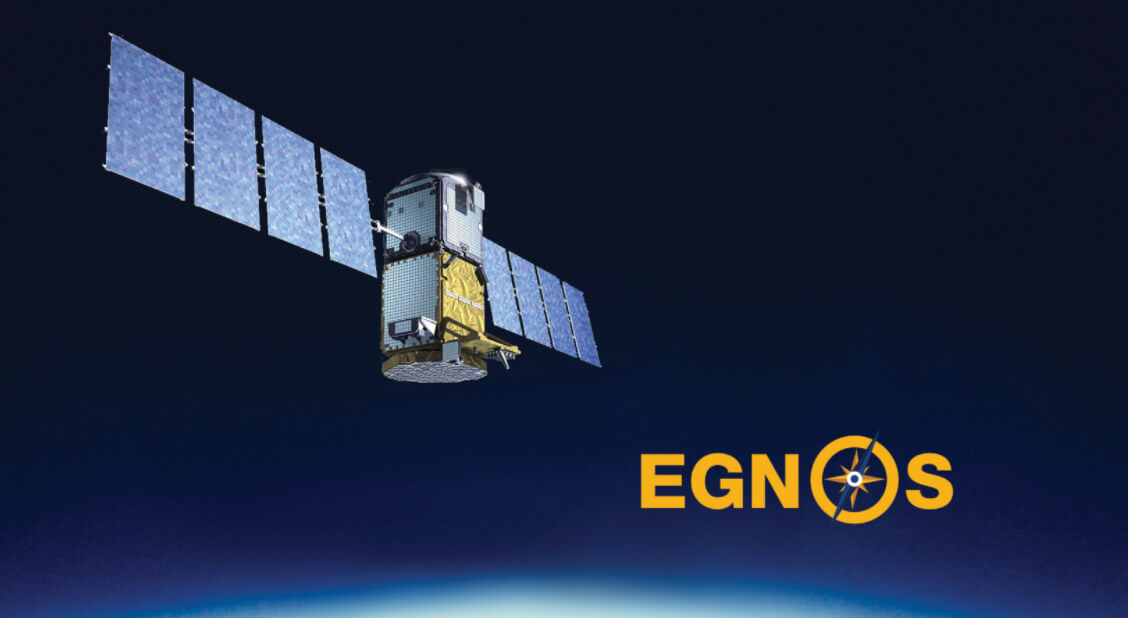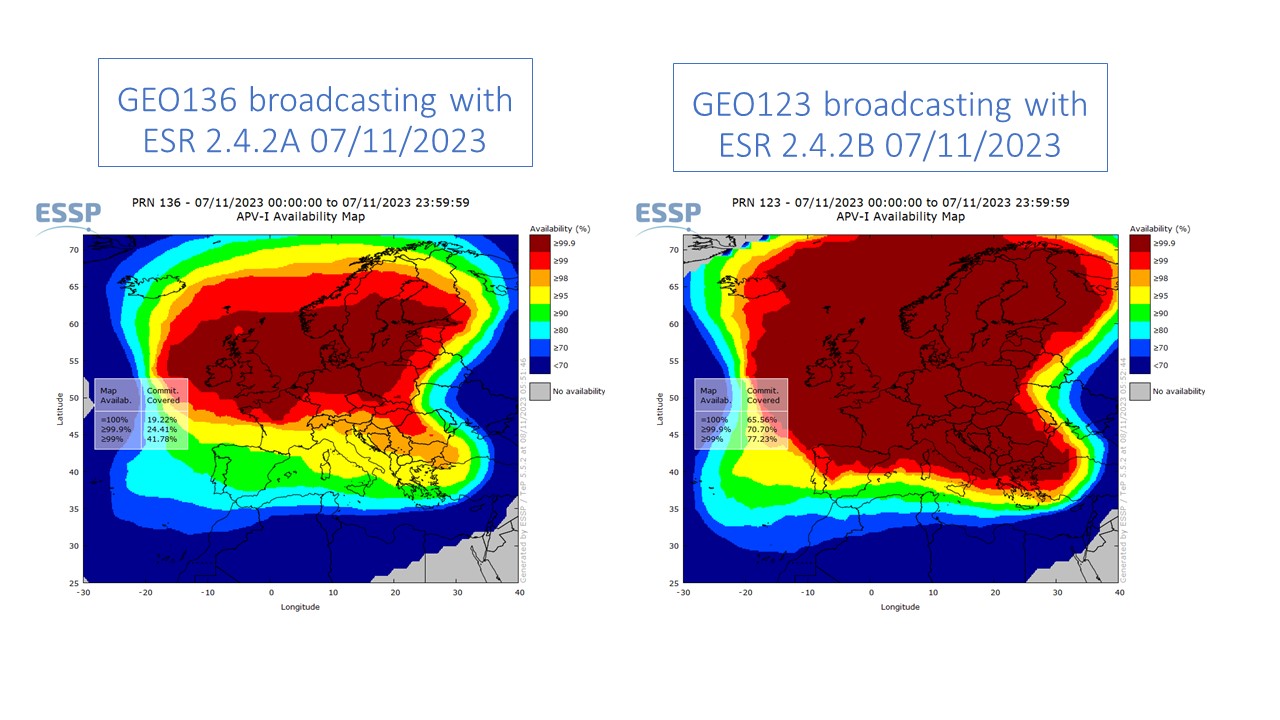
Eight months ago, the release of EGNOS last version marked a significant milestone in the evolution of this essential technology, and its performance has been exceptional, even amid the challenges of the solar peak.
The European Geostationary Navigation Overlay Service (EGNOS) is a satellite-based augmentation system (SBAS) that enhances the performance of global navigation satellite systems (GNSS). By providing improved positioning accuracy, integrity, and availability, EGNOS plays a crucial role in supporting various critical applications across Europe.
What does EGNOS new version offer to the European GNSS users?
EGNOS 2.4.2.B is the latest version of the EGNOS system, designed to offer enhanced performance and new capabilities. Among the most notable advancements are increased signal integrity, expanded coverage, and greater overall system reliability.
Over the past eight months, EGNOS has demonstrated remarkable stability and accuracy, even during periods of heightened solar activity, which can often disrupt satellite communications. EGNOS has maintained high levels of performance and reliability, demonstrating its robustness in challenging conditions.
ESSP, the European Satellite Services Provider, as EGNOS Services Provider, oversees the operations and the deployment of all new versions of EGNOS. The last EGNOS version was released between October and December 2023, after ESSP received authorization from EASA to proceed with the effective deployment of this new release.
Charlotte Neyret, CEO at ESSP said: “This important deployment was possible thanks to the combined effort of ESSP, as operator and service provider of the EGNOS system since 2009, and EUSPA, the European Agency responsible for EU Space Programme that has procured to the EGNOS Industry, led by TAS, this new EGNOS release, to improve the EGNOS services performances, especially to strengthen the system against the solar activities (mainly iono activities)."
The first Signal in Space was broadcast on November 4th, and immediately after, all EGNOS users started to receive the benefit of this major improvement from the European SBAS, in particular for the ATM.
This significant update to the EGNOS system enhances its robustness against disturbances caused by Solar Cycle 25, which peak is expected in 2025. It improves ionosphere monitoring and provides better signal accuracy, particularly for applications where precision is critical, such as aviation and maritime navigation.
Antoine Delaveleye, EGNOS Service Operation Unit Manager at ESSP said: "With the deployment of this new version of the EGNOS system, which offers a significant improvement in terms of robustness against such solar events, European SBAS users have seen an improvement in the accuracy performance achieved, while ensuring the appropriate levels of availability needed to continue to perform EGNOS-based LPV approaches across Europe with the appropriate levels of safety and security."

This EGNOS system release has also shown notable improvements in the northern regions of the EGNOS service area. EGNOS is critical for various applications including aviation, drones, and maritime navigation, providing increased accuracy and reliability of GNSS signals.
EGNOS European coverage map comparison

The EGNOS system includes various segments: the ground segment, which consists of monitoring stations and control centres; the space segment, with geostationary satellites; and the user segment, requiring EGNOS-compatible receivers to receive and process the corrections.
For detailed information and visual aids on EGNOS, you can visit the EGNOS User Support Website: https://egnos.gsc-europa.eu/
Applications and Benefits
The improvements brought by EGNOS have significant implications for various industries:
- Aviation: Enhanced accuracy and reliability are critical for aviation, where precise navigation and landing are essential for safety. EGNOS supports advanced landing procedures and improves overall air traffic management.
- Maritime: For maritime navigation, the improved system ensures safer and more efficient routing, particularly in challenging environments such as harbours and narrow waterways.
- Land-based Services: Land-based applications, including agriculture, surveying, and logistics, benefit from enhanced precision and reliability, leading to more efficient and accurate operations.
Over the past eight months, a wide range of industries have reported substantial benefits from the improved capabilities of EGNOS, highlighting its positive impact on operational efficiency and safety with its enhanced accuracy, reliability, and expanded coverage.
This new EGNOS system release is playing a pivotal role in satellite navigation and augmentation services. As technology continues to advance, further enhancements and new capabilities are expected to be integrated into the system. The strategic importance of EGNOS will only grow, supporting the European Union's leadership in GNSS technology and providing critical infrastructure for various applications.

